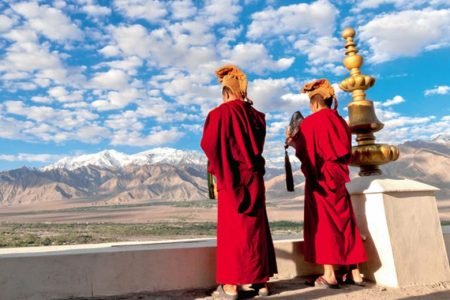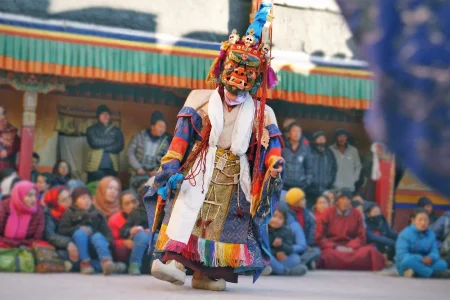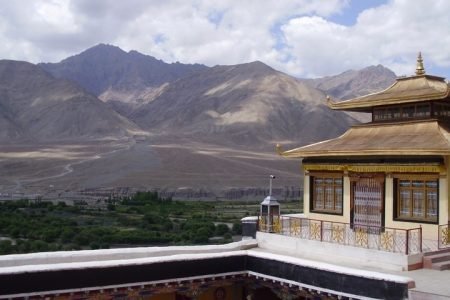Conclusion
Phuktal Monastery is not just a place of worship; it is a testament to the enduring spiritual heritage of Ladakh’s high-altitude borderlands.
Tucked into a remote cliffside of the Lungnak Valley in southeastern Zanskar, Phuktal Monastery is one of the most isolated and awe-inspiring monastic complexes in Ladakh. Founded in the early 12th century by the esteemed Tibetan sage Gangsem Sherap Sampo, the monastery is built around a natural cave believed to have been visited by numerous sages, monks, and scholars over the centuries. Its name, “Phuktal,” means “Cave of Liberation” in the local Zanskari dialect.
Suspended like a honeycomb against a vertical limestone cliff above the Tsarap River, Phuktal Monastery is a stunning fusion of nature and spirituality. The monastery is constructed around a large cave, which is still used for meditation and spiritual retreat. Its interior features ancient murals, sacred scriptures, and a calm, almost timeless atmosphere. Despite its remoteness, the monastery functions as a living spiritual center, home to around 70 monks and a monastic school providing education to children from nearby villages.
For devotees, Phuktal offers a rare connection to the roots of Tibetan Buddhism in a pure, untainted setting. For adventurers and seekers, reaching the monastery itself is a pilgrimage—accessible only by foot after a long trek through rugged mountain paths. And for those drawn to untouched beauty, the dramatic landscape surrounding the monastery creates an unforgettable experience of peace and isolation.
Whether you’re a seeker of faith or beauty, Phuktal Monastery promises to touch your soul and stay etched in your Ladakhi memories forever.






